Fleurs du Mal Magazine


Or see the index
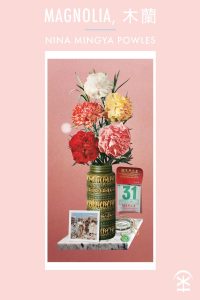 Women Poet’s Prize and Nan Shepherd Prize winner: Nina Mingya Powles publishes a much-anticipated second collection in July 2025
Women Poet’s Prize and Nan Shepherd Prize winner: Nina Mingya Powles publishes a much-anticipated second collection in July 2025
– In the Hollow of the Wave examines Orientalism, art and artmaking in a time of ecological crisis in distinctive poems that are elemental and tactile, shaped by memory and landscapes of the body.
Powles’ debut poetry collection, Magnolia, was shortlisted for the Forward Prize for Best First Collection and the Ondaatje Prize.
 Nina Mingya Powles (born 1993) is a New Zealand poet and essayist. Born in Wellington, Powles has spent time living in Shanghai and London.
Nina Mingya Powles (born 1993) is a New Zealand poet and essayist. Born in Wellington, Powles has spent time living in Shanghai and London.
Her poetry and essay collections are inspired by nature and her Chinese – Malaysian heritage, and she has received a number of notable awards including the inaugural Women Poets’ Prize in 2018.
In the Hollow of the Wave (Poems)
by Nina Mingya Powles
Nine Arches Press
ISBN: 9781916760226
Publication date: 24th July 2025
Format: Paperback
72 pp
ISBN: 9781916760226
Price: £11.99
•fleursdumal.nl magazine
More in: #Editors Choice Archiv, - Book News, - Bookstores, Archive O-P, Archive O-P, Grimm, Andersen e.o.: Fables, Fairy Tales & Stories
The story of art as it’s never been told before, from the Renaissance to the present day, with more than 300 works of art.
How many women artists do you know? Who makes art history? Did women even work as artists before the twentieth century? And what is the Baroque anyway?
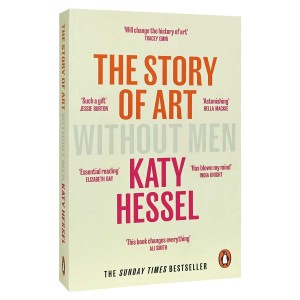 Guided by Katy Hessel, art historian and founder of @thegreatwomenartists, discover the glittering paintings by Sofonisba Anguissola of the Renaissance, the radical work of Harriet Powers in the nineteenth-century United States and the artist who really invented the “readymade.”
Guided by Katy Hessel, art historian and founder of @thegreatwomenartists, discover the glittering paintings by Sofonisba Anguissola of the Renaissance, the radical work of Harriet Powers in the nineteenth-century United States and the artist who really invented the “readymade.”
Explore the Dutch Golden Age, the astonishing work of postwar artists in Latin America, and the women defining art in the 2020s.
Have your sense of art history overturned and your eyes opened to many artforms often ignored or dismissed. From the Cornish coast to Manhattan, Nigeria to Japan, this is the history of art as it’s never been told before.
Katy Hessel is an art historian, broadcaster and curator dedicated to celebrating women artists from all over the world. She runs @thegreatwomenartists Instagram and The Great Women Artists Podcast, where she has interviewed the likes of Tracey Emin, Marina Abramovic and authors Ali Smith and Deborah Levy. Katy has lectured at Tate and National Gallery, presented films for the BBC, and is a Visiting Fellow at Cambridge University. She is a columnist for the Guardian, and the author of The Story of Art without Men – a Sunday Times Bestseller and winner of Waterstones Book of the Year 2022.
Katy Hessel:
The Story of Art without Men
Publisher: W. W. Norton & Company
May 2, 2023
Language: English
Hardcover: 512 pages
ISBN-10: 0393881865
ISBN-13: 978-0393881868
26,28 euro – hardcover
• fleursdumal.nl magazine
More in: #Non-fiction: Archive, - Book News, - Bookstores, Archive G-H, Art & Literature News, FDM Art Gallery, Feminism, The Ideal Woman
Italiaanse roman over een schooljuf en de zelfmoord van een leerlinge.
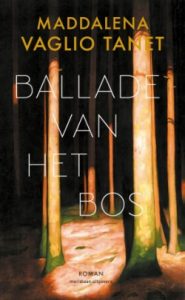 1970, een stadje aan de voet van de Alpen in Piëmont. Een juf op een basisschool vertrekt van huis, maar in plaats van naar school gaat ze het bos in. In de krant leest ze dat een van haar leerlingen uit een raam in de beek is gesprongen en is overleden. De juf verdwijnt en dagenlang volgt men de zoektocht met ingehouden adem.
1970, een stadje aan de voet van de Alpen in Piëmont. Een juf op een basisschool vertrekt van huis, maar in plaats van naar school gaat ze het bos in. In de krant leest ze dat een van haar leerlingen uit een raam in de beek is gesprongen en is overleden. De juf verdwijnt en dagenlang volgt men de zoektocht met ingehouden adem.
Degene die haar vindt is een eenzaam kind, Martino: de vrouw hallucineert, heeft honger en wordt overmand door schuldgevoelens. Martino voelt aan dat ze nog niet klaar is om terug te keren naar de wereld en bezoekt haar in het geheim, brengt haar eten en praat met haar. En toch is hij verscheurd, omdat hij weet dat de familie van de lerares wanhopig naar haar op zoek is…
Ballade van het bos is gebaseerd op een waargebeurd verhaal, gedocumenteerd door krantenartikelen en familieherinneringen. De roman stond op de longlist voor de Premio Strega 2023, een eer die slechts zeer weinig debuutromans ten deel valt.
Maddalena Vaglio Tanet studeerde literatuurwetenschap aan de Universiteit van Pisa en verhuisde daarna naar New York voor een PhD aan Columbia University. Ze werkt als literair scout. Ballade van het bos is haar debuutroman, de vertaalrechten zijn nog vóór publicatie in Italië verkocht aan het Verenigd Koninkrijk, de Verenigde Staten, Duitsland, Griekenland en Portugal. Ze woont met haar gezin in Maastricht.
Ballade van het bos
Door: Maddalena Vaglio Tanet
Paperback met flappen
Formaat: 12,5 x 20,5 cm
280 pagina’s
Meridiaan Uitgevers
Verschijningsdatum:25 april 2024
Vertaler(s): Manon Smits
EAN: 9789493305090
• fleursdumal.nl magazine
More in: - Book News, - Bookstores, Archive S-T, Suicide, Tales of Mystery & Imagination
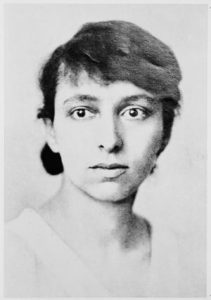
Märchen
Ich hab vor deinem Hause still gestanden
In einer Nacht.
Und hatte ganz dich lieb und ohne Maßen;
Ich wies zu dir den Sternen goldne Straßen
Und habe selig stumm gelacht.
Ob meinem losen Haar hob ich die Arme
Wie Zweige, schlank und rund.
Da stürzte Regen in das Mainachtschweigen
Und rief sich zage Blüten aus den Zweigen,
Und jede war ein blasser Mund.
Du aber kamst nicht.
So streute ich mit lächelndem Verschwenden
Dem Mond die Blumen her.
Und spürte Treiben herber, dunkler Kräfte,
Mir ward die Frucht voll süßer, süßer Säfte;
Schon fiel sie, duftend, weich und schwer.
Du aber kamst nicht.
Eishagel tanzte höhnend auf den Steinen.
Da klaffte schwarz ein Schacht.
Drein ließ ich die zerbrochnen Arme hangen. –
Geblüht und Frucht getragen – und vergangen
In einer Nacht.
Gertrud Kolmar
(1894 – 1943)
Märchen
• fleursdumal.nl magazine
More in: #Editors Choice Archiv, Archive K-L, Archive K-L, Grimm, Andersen e.o.: Fables, Fairy Tales & Stories, Holocaust, Kolmar, Gertrud
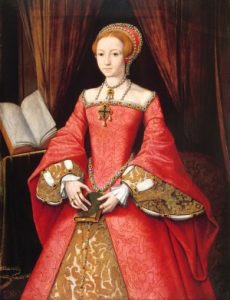
Seulette suis…
Seulette suis, et seulette veux être,
Seulette m’a mon doux ami laissée.
Seulette suis, sans compagnon ni maître,
Seulette suis, dolente et courroucée,
Seulette suis, en langueur malaisée,
Seulette suis, plus que nulle égarée,
Seulette suis, sans ami demeurée.
Seulette suis, à huis ou à fenêtre,
Seulette suis, en un anglet muciée,
Seulette suis, pour moi de pleurs repaître,
Seulette suis, dolente ou apaisée,
Seulette suis, rien qui tant messiée,
Seulette suis, en ma chambre enserrée,
Seulette suis, sans ami demeurée.
Seulette suis, partout et en tout aître,
Seulette suis, que je marche ou je siée,
Seulette suis, plus qu’autre rien terrestre,
Seulette suis, de chacun délaissée,
Seulette suis, durement abaissée,
Seulette suis, souvent toute éplorée,
Seulette suis, sans ami demeurée.
Princes, or est ma douleur commencée :
Seulette suis, de tout deuil menacée,
Seulette suis, plus teinte que morée,
Seulette suis, sans ami demeurée.
Christine de Pisan
(1364/1365 – 1430)
Seulette suis…
Poéme
• fleursdumal.nl magazine
More in: # Classic Poetry Archive, Archive O-P, Archive O-P, Pisan, Christine de, The Ideal Woman
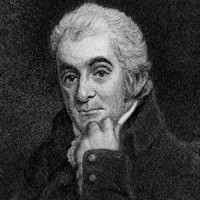
The Sleeping Beauty
Sleep on, and dream of Heaven awhile—
Though shut so close thy laughing eyes,
Thy rosy lips still wear a smile
And move, and breathe delicious sighs!
Ah, now soft blushes tinge her cheeks
And mantle o’er her neck of snow:
Ah, now she murmurs, now she speaks
What most I wish—and fear to know!
She starts, she trembles, and she weeps!
Her fair hands folded on her breast:
—And now, how like a saint she sleeps!
A seraph in the realms of rest!
Sleep on secure! Above control
Thy thoughts belong to Heaven and thee:
And may the secret of thy soul
Remain within its sanctuary!
Samuel Rogers
(1763 – 1855)
The Sleeping Beauty
• fleursdumal.nl magazine
More in: # Classic Poetry Archive, Archive Q-R, Archive Q-R, Grimm, Andersen e.o.: Fables, Fairy Tales & Stories

The Sleeper
At midnight, in the month of June,
I stand beneath the mystic moon.
An opiate vapor, dewy, dim,
Exhales from out her golden rim,
And softly dripping, drop by drop,
Upon the quiet mountain top,
Steals drowsily and musically
Into the universal valley.
The rosemary nods upon the grave;
The lily lolls upon the wave;
Wrapping the fog about its breast,
The ruin moulders into rest;
Looking like Lethe, see! the lake
A conscious slumber seems to take,
And would not, for the world, awake.
All Beauty sleeps!—and lo! where lies
Irene, with her Destinies!
Oh, lady bright! can it be right—
This window open to the night?
The wanton airs, from the tree-top,
Laughingly through the lattice drop—
The bodiless airs, a wizard rout,
Flit through thy chamber in and out,
And wave the curtain canopy
So fitfully—so fearfully—
Above the closed and fringéd lid
’Neath which thy slumb’ring soul lies hid,
That, o’er the floor and down the wall,
Like ghosts the shadows rise and fall!
Oh, lady dear, hast thou no fear?
Why and what art thou dreaming here?
Sure thou art come o’er far-off seas,
A wonder to these garden trees!
Strange is thy pallor! strange thy dress!
Strange, above all, thy length of tress,
And this all solemn silentness!
The lady sleeps! Oh, may her sleep,
Which is enduring, so be deep!
Heaven have her in its sacred keep!
This chamber changed for one more holy,
This bed for one more melancholy,
I pray to God that she may lie
Forever with unopened eye,
While the pale sheeted ghosts go by!
My love, she sleeps! Oh, may her sleep,
As it is lasting, so be deep!
Soft may the worms about her creep!
Far in the forest, dim and old,
For her may some tall vault unfold—
Some vault that oft hath flung its black
And wingéd pannels fluttering back,
Triumphant, o’er the crested palls
Of her grand family funerals—
Some sepulchre, remote, alone,
Against whose portals she hath thrown,
In childhood, many an idle stone—
Some tomb from out whose sounding door
She ne’er shall force an echo more,
Thrilling to think, poor child of sin!
It was the dead who groaned within.
Edgar Allan Poe
(1809 – 1849)
The Sleeper
• fleursdumal.nl magazine
More in: - Archive Tombeau de la jeunesse, Archive O-P, Archive O-P, Edgar Allan Poe, Poe, Edgar Allan, Poe, Edgar Allan, Tales of Mystery & Imagination
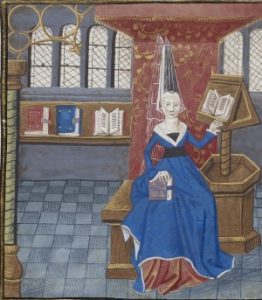
Comme surpris
Comme surpris
Et entrepris
De vostre amour,
Je me rens pris
En vo pourpris,
Dame d’onnour.
Si ne mespris
Quant j’entrepris
Si haulte honnour
Comme surpris.
Mais en despris
Ne m’ait le pris
De vo valour;
Car j’ay apris
Les biens compris
En vo doulçour
Comme surpris.
Christine de Pisan
(1364/1365 – 1430)
Comme surpris
Rondeaux
• fleursdumal.nl magazine
More in: # Classic Poetry Archive, Archive O-P, Archive O-P, Pisan, Christine de, The Ideal Woman
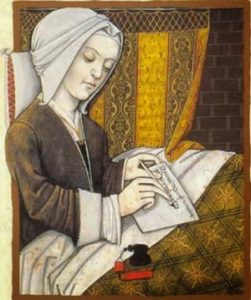
Belle, ce que j’ay requis
Belle, ce que j’ay requis
Or le vueilliez ottroier,
Car par tant de fois proier
Bien le doy avoir conquis.
Je l’ay ja si long temps quis,
Et pour trés bien emploier,
Belle, ce que j’ay requis.
Se de moy avez enquis,
Ne me devez pas noyer
Mon guerdon, ne mon loier;
Car par raison j’ai acquis,
Belle, ce que j’ay requis.
Christine de Pisan
(1364/1365 – 1430)
Belle, ce que j’ay requis
Rondeaux
• fleursdumal.nl magazine
More in: # Classic Poetry Archive, Archive O-P, Archive O-P, Pisan, Christine de, The Ideal Woman
Pour la première fois depuis trois mois, elles discernent enfin le sable que leur cachait l’eau lors de la traversée de l’Atlantique, ce fond de l’océan qu’elles ont brièvement aperçu ce matin en débarquant de La Baleine.
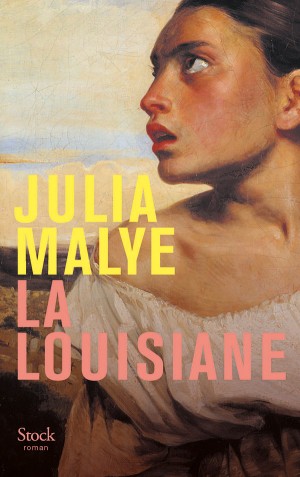 Personne ne leur a expliqué où elles seraient logées ce soir, dans combien de temps elles seraient fiancées. On ne dit pas tout aux femmes.
Personne ne leur a expliqué où elles seraient logées ce soir, dans combien de temps elles seraient fiancées. On ne dit pas tout aux femmes.
Paris, 1720. Marguerite Pancatelin, la Supérieure de la Salpêtrière, est mandatée pour sélectionner une centaine de femmes « volontaires » qui seront envoyées en Louisiane afin d’y épouser les colons français. Parmi elles, trois amies improbables : une orpheline de douze ans à la langue bien pendue, une jeune aristocrate désargentée et rejetée par sa famille ainsi qu’une femme condamnée pour avortement.
Comme leurs compagnes à bord de La Baleine , Charlotte, Pétronille et Geneviève ignorent tout de ce qui les attend au-delà des mers. Et n’ont pas leur mot à dire sur leur avenir.
Ces étrangères réunies par le destin devront braver l’adversité – maladie, guerre, patriarcat –, traverser une vie faite de chagrins d’amour, de naissances et de deuils, de cruauté et de plaisirs inattendus. Et d’une amitié forgée dans le feu.
Un roman d’une profondeur et d’une émotion saisissantes, qui nous transporte au cœur d’une terre impitoyable, aux côtés d’héroïnes animées d’une extraordinaire soif d’amour et de vie.
Julia Malye est née à Paris en 1994. Elle a publié son premier roman, La Fiancée de Tocqueville (éditions Balland), à l’âge de 15 ans. Diplômée de Sciences Po et de la Sorbonne en sciences sociales et lettres modernes, elle est également titulaire d’un Master of Fine Arts en creative writing de l’Université d’État de l’Oregon. Elle est traductrice de l’anglais pour Les Belles Lettres et, depuis 2018, elle enseigne l’écriture de fiction à Sciences Po. Son quatrième roman, La Louisiane, écrit parallèlement en français et en anglais, est en cours de traduction dans plus de vingt pays et sera adapté en série.
La Louisiane
par Julia Malye
Roman
Ed. Stock
Paru le: 03 Janvier 2024
Format: 138 x 216 mm
560 pages
Ean: 9782234094116
Prix: €23.90
• fleursdumal.nl magazine
More in: - Book Lovers, - Book News, - Bookstores, Archive M-N, The Ideal Woman
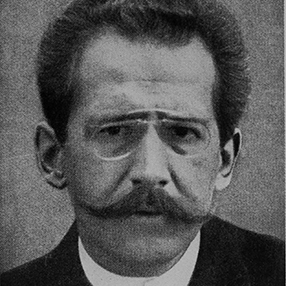
Auf einem Berg aus Zuckerkant
Auf einem Berg aus Zuckerkant,
unter einem blühenden Machandelbaum,
blinkt mein Pfefferkuchenhäuschen.
Seine Fensterchen sind aus Goldpapier,
aus seinem Schornstein raucht Watte.
Im grünen Himmel, über mir,
rauscht die Weihnachtstanne.
In meinem See aus Staniol
spiegeln sich alle ihre Engel, alle ihre Lichter!
Die kleinen Kinder stehn rum
und staunen mich an.
Ich bin der Zwerg Turlitipu.
Mein dicker Bauch ist aus Traganth,
meine Beinchen Streichhölzer,
meine listigen Äugelchen
Korinthen.
Arno Holz
(1863 – 1929)
Auf einem Berg aus Zuckerkant
(aus: “Phantasus”)
• fleursdumal.nl magazine
More in: #Experimental Poetry Archive, 4SEASONS#Winter, Archive G-H, Archive G-H, Expressionism, Grimm, Andersen e.o.: Fables, Fairy Tales & Stories
November 2026. De Franse presidentsverkiezingen komen er weer aan, de zittende president kan na zijn tweede termijn niet worden herkozen, dus het hele veld ligt open en radicaal rechts maakt een goede kans.
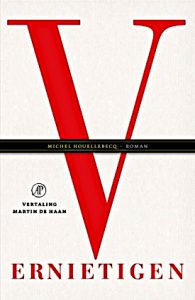 Dan verschijnt er op internet een onmogelijk realistische nepvideo waarin een van de voornaamste kandidaten wordt geëxecuteerd. De verantwoordelijkheid voor het onderzoek komt terecht bij topambtenaar Paul Raison, en over hem gaat dit boek: over zijn pogingen om een grote terroristische dreiging te pareren, maar vooral ook over zijn privéleven, zijn relatie met zijn vrouw, zijn familie.
Dan verschijnt er op internet een onmogelijk realistische nepvideo waarin een van de voornaamste kandidaten wordt geëxecuteerd. De verantwoordelijkheid voor het onderzoek komt terecht bij topambtenaar Paul Raison, en over hem gaat dit boek: over zijn pogingen om een grote terroristische dreiging te pareren, maar vooral ook over zijn privéleven, zijn relatie met zijn vrouw, zijn familie.
Michel Houellebecq (1958) is Frankrijks onbetwiste sterschrijver van dit moment. Hij publiceerde essays en poëzie voordat hij zich in 1994 met de roman De wereld als markt en strijd, die bekroond werd met diverse prijzen, opwierp als belofte van de Franse letteren. Die status bevestigde hij met Elementaire deeltjes (Prix Novembre en Impact Dublin Literary Award), dat hem terecht de faam van groot schrijver bezorgde, en Platform. In 2011, 2015 en 2019 verschenen zijn grote romans De kaart en het gebied, Onderworpen en Serotonine. In juni 2022 verscheen een nieuwe editie van zijn essays onder de titel Nader tot de ontreddering. Zijn veelvuldig bekroonde en wereldwijd vertaalde werk is in het Nederlands vertaald door Martin de Haan.
Vernietigen
Michel Houellebecq
Roman
Vertaling: Martin de Haan
Nederlands
Uitgeverij De Arbeiderspers
Hardcover
2023
608 pagina’s
EAN 9789029545884
€29,99
• fleursdumal.nl magazine
More in: - Book News, - Bookstores, Archive G-H, Archive G-H, AUDIO, CINEMA, RADIO & TV, Erotic literature, Michel Houellebecq
Thank you for reading Fleurs du Mal - magazine for art & literature